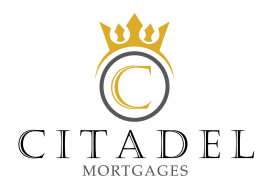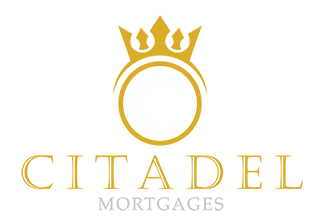Owning a property is a significant milestone for many Canadians. However, there are situations where you might need to take out multiple mortgages simultaneously. Whether you’re considering purchasing a second home, investing in rental properties, or exploring other real estate opportunities, it’s important to understand the regulations and limitations surrounding multiple mortgages in Canada.
How Many Mortgages Can I Get at the Same Time?
In Canada, you can have multiple mortgages on different properties simultaneously. There is no specific legal limit on the number of mortgages you can have. However, the number of mortgages you can obtain for a single property is generally limited to two.
How Do Mortgages Work?
To understand the limitations on multiple mortgages, it’s essential to grasp how mortgages work. A mortgage is a loan provided by a lender to finance the purchase of a property. The property itself serves as collateral for the loan. In the event of default, the lender has the right to seize and sell the property to recover their investment.
Mortgages are analyzed in terms of lien position, which determines the priority of each mortgage in the event of foreclosure. The first mortgage, also known as the first-position mortgage, holds the primary lien position. If multiple mortgages exist on a property, the second mortgage, or second-position mortgage, holds a subordinate lien position.
Why You Can’t Get More Than Two Mortgages
The reason you can’t generally obtain more than two mortgages on a single property is due to the difficulty of finding a lender willing to assume the third lien position. Banks and lenders are reluctant to take on this level of risk, as third-position mortgages are typically paid last in foreclosures, and there is a higher chance of not being paid at all.
During the financial crisis of 2008 and 2009, many second-position lenders did not receive payment in foreclosures, let alone third-position lenders. As a result, banks are hesitant to extend loans for third mortgages, and if they do, the interest rates may be prohibitively high.
In summary, while you can have multiple mortgages on different properties, the general limit for mortgages on a single property in Canada is two.
How does a First Mortgage Work?
As a first-time homeowner, obtaining a first mortgage is typically the initial step in purchasing a property. When you secure a first mortgage, your lender provides you with the funds necessary to buy the property. The specific criteria for obtaining a first mortgage vary among lenders but generally include factors such as credit score, loan-to-value ratio, down payment, and repayment plan.
The loan-to-value (LTV) ratio is an essential consideration for lenders. It represents the percentage of the property’s value that you are borrowing. For example, if you are purchasing a property worth $100,000 and have an LTV ratio of 80%, you would receive a loan of $80,000, while providing a down payment of $20,000.
Repayment of the first mortgage occurs through monthly installments over a specified period. As you make payments, your equity in the property increases. Once the loan is fully repaid, you become the sole owner of the property.
What Is a Second Mortgage and How Does It Work?
A second mortgage is a loan obtained while you still have an existing first mortgage. It allows you to tap into the equity you have built up in your property. This equity represents the difference between the current market value of your property and the outstanding balance on your first mortgage.
A second mortgage in Canada can be acquired from the same lender as your first mortgage or a different lender. The funds received from a second mortgage can be used for various purposes, such as home renovations, debt consolidation, or investments. Unlike first mortgages, there are generally no usage restrictions on second mortgages.
Similar to a first mortgage, a second mortgage involves a lien against a portion of your home equity. The lender provides you with a loan equivalent to the value of the equity you mortgaged. The requirements for obtaining a second mortgage vary among lenders, including factors such as credit score, income, debt-to-income ratio, and the amount of equity you have in the property.
Types of Second Mortgages
There are two common types of second mortgages: home equity loans and home equity lines of credit (HELOCs).
Home Equity Loan
A home equity loan in Canada provides you with a lump sum of cash equivalent to the portion of your home equity you wish to mortgage. This loan is repaid over a set period, typically through monthly installments. The interest rates for home equity loans are usually lower than those of credit cards, making them an attractive option for consolidating high-interest debts or funding home improvements.
Home Equity Line of Credit (HELOC)
A HELOC in Canada functions similarly to a credit card. Instead of receiving a lump sum, you are granted a line of credit based on a percentage of your home equity. You can draw from this line of credit as needed, and interest is only charged on the amount you borrow. HELOCs typically have a draw period, during which you can access the funds, followed by a repayment period.
How a Home Refinancing Works
Home refinancing is another option to consider if you require additional funds or want to take advantage of better interest rates. Refinancing involves replacing your existing mortgage with a new one, often with more favorable terms.
When you refinance your mortgage in Canada, you can choose to increase the loan amount to access additional funds. This is known as a cash-out refinance. The new mortgage pays off your original mortgage, and you receive the difference in cash.
Refinancing can be beneficial if you want to consolidate debts, make home improvements, or invest in other properties. However, it’s important to carefully consider the costs and potential savings associated with refinancing, such as closing costs, prepayment penalties, and the impact on your monthly payments.
The Difference Between a Second Mortgage and a Home Refinance
While both second mortgages and home refinancing involve accessing additional funds, there are key differences between the two.
A second mortgage allows you to borrow against the equity you have built in your property while maintaining your existing first mortgage. It involves receiving a separate loan with its own repayment terms and interest rates. You will have two mortgages on your property, each with its own lien position.
On the other hand, home refinancing replaces your current mortgage with a new one. This new mortgage may have a higher loan amount, allowing you to access additional funds. Unlike a second mortgage, refinancing consolidates your existing mortgage and any additional funds into a single loan. This can be beneficial if you want to take advantage of lower interest rates or adjust the terms of your mortgage.
What are the eligibility criteria for taking out a second mortgage?
The eligibility criteria for a second mortgage in Canada are similar to those for a first mortgage. Lenders will evaluate factors such as your income, employment status, credit score, and debt-to-income ratio. They want to ensure that you have the financial means to handle multiple mortgage payments.
It’s important to provide evidence of your income, including pay stubs or tax returns, and documentation of any outstanding debts or financial commitments. Your credit score will also be taken into consideration, as it reflects your creditworthiness and ability to repay loans.
Lenders will calculate your debt-to-income ratio, which compares your monthly debt payments to your gross monthly income. Generally, a lower debt-to-income ratio is preferred, as it indicates a lower risk for the lender. Aim to keep your debts, including both mortgages, below 25% of your monthly income to increase your chances of approval.
What are the Additional costs for a second mortgage?
Obtaining a second mortgage comes with additional costs that you should consider. These costs include:
- Higher Deposit:
When purchasing a second property, lenders typically require a higher deposit compared to a first home. While first-time buyers may be able to secure a mortgage with a 5% deposit, second properties often require a deposit of at least 15%. For buy-to-let properties, the deposit can be even higher, often around 25% of the property’s value. - Stamp Duty:
When buying a property in Canada, you are required to pay Stamp Duty Land Tax (SDLT). The rate for second properties is higher than that for first homes. Additionally, a 3% surcharge is applied to the standard SDLT rate for second properties. It’s important to factor in these additional costs when budgeting for a second mortgage.
How to Improve your chances of getting a second mortgage
While obtaining a second mortgage may come with additional requirements, there are steps you can take to improve your chances of approval:
- Pay off High-Interest Debts:
Prioritize paying off any high-interest debts, such as credit cards or personal loans. Lenders consider these debts riskier and may view them unfavorably when evaluating your mortgage application. - Boost Your Credit Score:
Take steps to improve your credit score by making timely payments, reducing credit card balances, and avoiding new credit applications. A higher credit score demonstrates your financial responsibility and increases your chances of obtaining favorable mortgage terms. - Save for a Larger Deposit:
Saving for a larger deposit can help reduce the loan-to-value ratio, making you a more attractive borrower. Lenders often offer better terms and interest rates to borrowers with a lower loan-to-value ratio. - Seek Professional Advice:
Working with a professional mortgage broker in Canada can help you navigate the complexities of obtaining a second mortgage. A broker can provide guidance, access multiple lenders, and help you find the best mortgage options based on your financial situation and goals.
Can you have two mortgages on one property?
It is possible to have two mortgages on one property. This is often referred to as a second charge mortgage. In this scenario, you are borrowing against the equity you have already paid off on your primary mortgage. A second mortgage allows you to access these funds for various purposes, such as home repairs, financing other projects, or consolidating debts.
A second mortgage differs from refinancing, where you replace your current mortgage with a new one. With a second charge mortgage, you retain your existing mortgage and take on a separate loan against the equity in your property.
It’s important to carefully consider whether a second mortgage is the best option for your financial situation. Increasing your mortgage debt comes with the risk of losing your home if you are unable to meet the repayment obligations. If you require a smaller loan amount, alternatives such as personal loans or lines of credit may be more suitable.
In Canada, it is possible to have multiple mortgages on different properties simultaneously. However, the number of mortgages you can obtain for a single property is generally limited to two. Understanding the regulations and eligibility criteria for second mortgages is crucial when considering real estate investments or accessing funds for various purposes.
By carefully evaluating your financial situation, improving your credit score, and working with experienced professionals mortgage brokers in Canada, you can increase your chances of obtaining a second mortgage. Whether you choose a second mortgage, home refinancing, or other financing options, it’s essential to weigh the costs, benefits, and risks associated with each decision.
If you have further questions or need assistance with your mortgages in Canada, reach out to Citadel Mortgages, your trusted mortgage brokers. We have the expertise and resources to guide you through the mortgage process and help you make informed decisions. Contact us today to explore your options and achieve your real estate goals.

Unexpected costs when buying a home in Canada
When buying a home in Canada, there are several unexpected costs that buyers should be aware of to avoid financial surprises. Some of the key

Considering An Early Mortgage Renewal
Why consider renewing your mortgage ahead of time? Well, one big reason is changes in interest rates. If rates drop, jumping on an early renewal

How to get a HELOC on an Investment Property in Canada
To get a Home Equity Line of Credit (HELOC) on an investment property, you need to follow these steps: 1. Know Your Finances: Estimate the

Expert Advice: Buying a House in Cash in Canada
In exploring the possibility of buying a house in cash in Canada, it’s essential to understand the various aspects that come into play. Here’s a

Average Down Payment for a House in Canada
According to the Canadian Real Estate Association, the average house price in Canada hit around $637,673 in August 2022. This means if you’re looking to

Assumable Mortgages: An In-Depth Look
Assumable mortgages are a unique financing alternative that could potentially save you thousands of dollars and simplify the home-buying process. But what exactly are they





